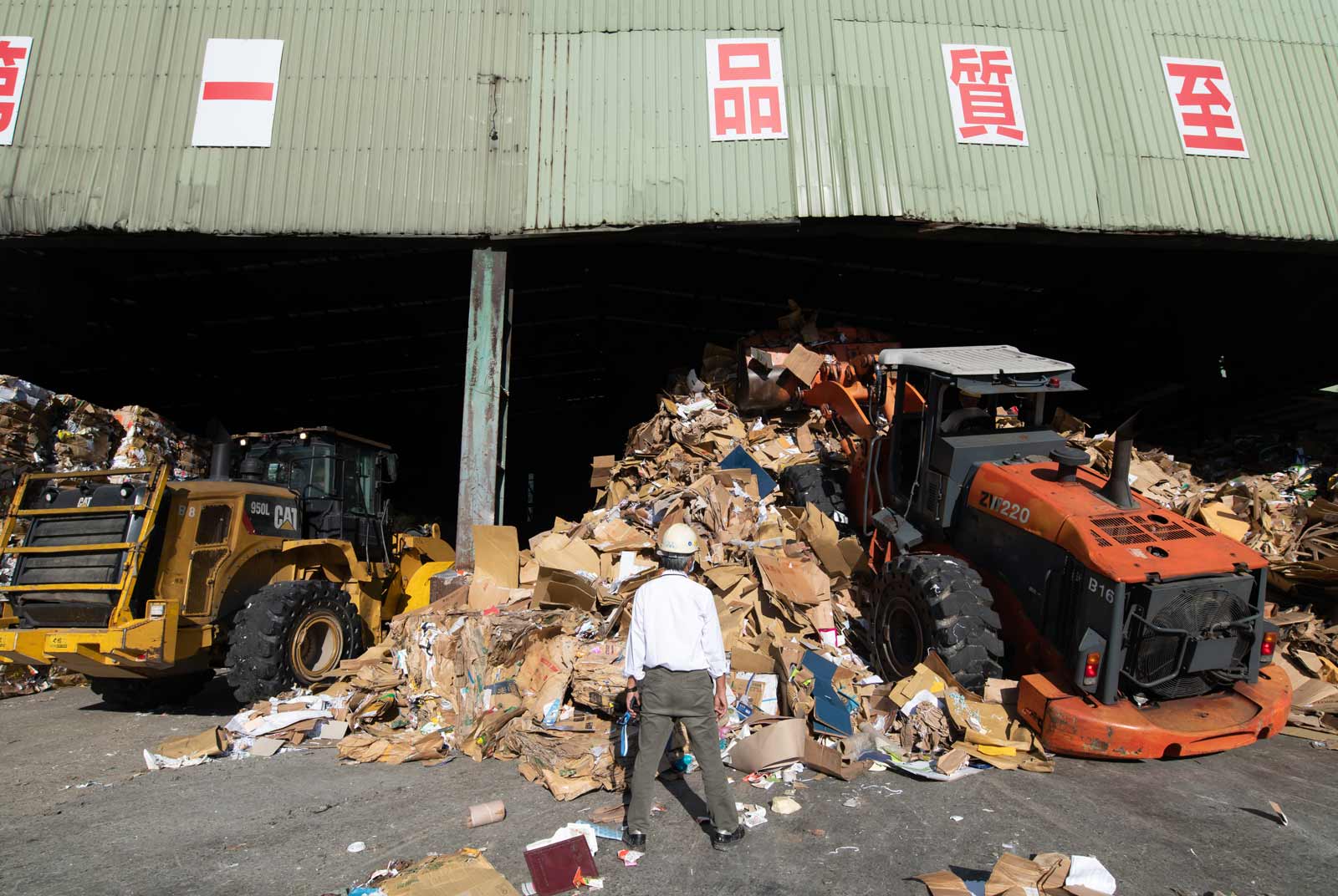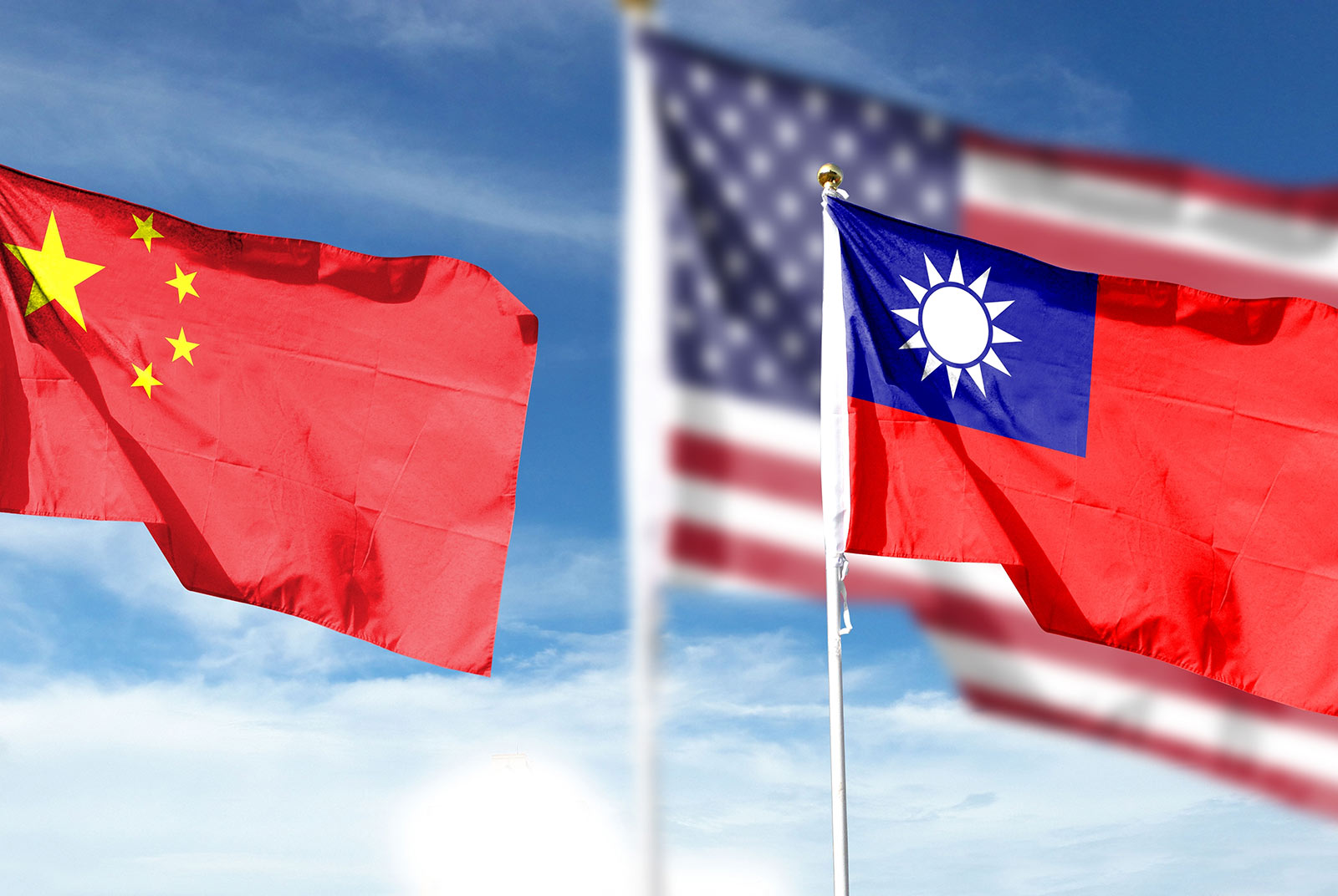Taiwan enterprises on the ‘green’ job

Source:Ming-Tang Huang
In this op-ed, Naina Singh highlights Taiwan's progress in embracing the circular economy model and making strides toward sustainability. O'right, Singtex and Cheng Loong Corporation are among the front runners.
Views
Taiwan enterprises on the ‘green’ job
By Naina Singhweb only
With the rising focus on sustainable development, both among people and governments , the circular economy model has emerged as a viable transformation answer. The model challenges the very idea of the traditional ‘take-make-dispose’ economies and reconceptualizes the production and consumption process to make efficient use of resources.
As a pivotal world economy, Taiwan is also making strides in reducing, reusing and recycling; the Holy Grail of circular economy. Unknown to many, Taiwan has already surpassed a majority of European and Scandinavian countries in its rates of recycling, putting the island nation only second to Germany. Now, Taiwanese enterprises are joining the action with innovative methods to create value in the circular economy, sometimes going beyond their corporate social responsibilities (CSR).
In her inaugural speech in 2016, President Tsai Ing-wen hinted towards the crucial role of the circular economy in the future development of Taiwan. The Island also incorporated the concept into its “5+2 Industrial Promotion Plan” to drive the growth of next-generation industries. According to a 2020 research by the Pew Research Center, about 76% Taiwanese said they would give priority to protecting the environment, even if it results in slower economic growth.
According to Taiwan’s Centre for Green Economy (CGE), Taiwanese enterprises are accepting the ‘green’ for its resource efficiency and value addition. But it is not only about recycling, research and development (R&D) is an essential part of this ‘Green Industrial Revolution’
Carbon-neutral beauty
 (Source: Guo-Tai Liu)
(Source: Guo-Tai Liu)
Founded in 2001, O'right set a green criteria itself to develop plant-based hair products and today it has achieved carbon neutrality across production processes and product lines. From post-consumer recycled (PCR) product packaging to green supply chain and office-building, the small-and-medium enterprise has become first in Taiwan to trade carbon credits.
In collaboration with Taichung-based Da Fon Environmental Technology and Living Fountain, the beauty brand developed 100 percent renewable plastic shampoo bottles and the world’s first renewable plastic pump. Through renewable packaging, it was able to reduce 375,308 kg of carbon and more than 250,000 kg of plastic in 2021, as indicated in their CSR report.
Local sourcing is also one of the major focuses of the brand's vision. O’right’s R&D facilities are dedicated to developing product formulas utilizing organic local agricultural products such as tea leaves, goji berry roots, and bamboo leaves. Moso bamboo, a native plant to Taiwan, is turned into hand-crafted bottle caps by local craftspeople, whereas coffee grounds and beans are mixed with biodegradable plastic to make a tree of shampoo bottles after use.
One of the brand’s aims is to increase the procurement of local raw materials to up to 90 % by 2025. As a green advocate, the ambitious brand has pocketed domestic and international recognition and has distributors across 40 countries, including the EU market.
Sustainable Fashion
 (Source: Chien-Ying Chiu)
(Source: Chien-Ying Chiu)
The textile sector is regarded globally as the one of most harmful industries to the environment. The environmental issues start from the production process and continue all the way to the finished products.
Taiwan’s textile industry has also transformed over the past 50 years from a downstream manufacturer of apparel and accessories to a midstream yarn, fabric, and dyeing hub with a growing interest in developing and innovating eco-friendly functional textile.
The product award winner of Taiwan Circular Economy Awards, Hsing Tsai industries, also known as Singtex, is continuing to make investments in cutting-edge R&D in order to supply durable eco-friendly textiles to international apparel manufacturers.
Established in 1989, the company uses coffee ground yarn production technology to manufacture a variety of products ranging from household to workplace and sports apparel. Made from plastic bottles and coffee grounds, the patented technology transforms the invisible value of coffee as an invaluable biodegradable and 100 percent recyclable fabric. In 2007, Singtex also invested NT$250 million to build an eco-friendly dying center.
With the philosophy of running a ‘business that warms the heart’ the company is determined to transform trash into cash and to be a global contender in supporting green fashion.
Zero-waste paper
 (Source: Ming-Tang Huang)
(Source: Ming-Tang Huang)
Despite increased technological advancement, paper still constitutes an essential part of day to day life. At the same time, the paper and pulp industry are among the world's largest emitters of greenhouse gasses and are directly related to deforestation. Despite companies' efforts to plant new seedlings to compensate for the logging, the ecosystem suffers irrevocably.
Keeping with the time, the Banqiao-based papermaking enterprise Cheng Loong corporation continues to invest in its paper recycling capacity. It also focuses on the proper use and treatment of water resources at every stage of paper manufacturing to enhance the organization's sustainability profile.
According to a Centre for Green Economy report, with its innovative water recycling solutions the company is able to achieve 96 percent recycling rate in its manufacturing process.
With its Dandelion eco-Friendly Toilet Paper, a household brand made of 100% recycled pulp in Taiwan, the enterprise upcycles the waste paper into a green product for daily use. Part of the electricity used in the production process of the product also comes from wind power generation.
Aiming to assist Taiwan’s net zero aim, one of the world’s largest paper-making enterprises is promoting resource consumption reduction, transforming waste to energy, using AI to increase efficiency, recycling and investing in new innovation.
These are just a few examples, the number of Taiwanese enterprises warming up to the idea are only increasing. With encouraging government policies and subsidiary support the industry is ready to shed old habits.
The future direction lies in including the circular economy practices and consciousness into all industries. Many established small and medium enterprises within the supply chain still consider ‘green’ businesses practices to be less profitable.
For example, Taiwan is the world's biggest supplier to established fast fashion brands and yet lacks substantial venues for processing used clothes. Integrating environment performance assessment at each and every stage of the process is rudimentary to re-servicing, an essential element to fulfill circular economy objectives.
Creating circular partnerships among companies is one way to move ahead.
Though the country has made substantial progress in technology, it still needs to do more to take advantage of its wider potential. Investment in green tech and production of smart machines is just one step, it should be complemented with a business strategy that presents these developments as services.
Together with the government and non-state actors, the business operators should share a responsibility to engage its partners, clients, customers and staff in raising awareness. Being an export-oriented economy and intricately linked with international trends, convincing businesses to re-think and adapt will still be the biggest challenge Taiwan faces.
(This piece reflects the author's opinion, and does not represent the opinion of CommonWealth Magazine.)About the author

Naina Singh is a PhD candidate at the Graduate Institute of International Politics, National Chung Hsing University, Taiwan. She is a Ministry of Education Scholarship Recipient. Her research focuses on exploring subnational diplomacy of Indian and Chinese states/provinces, the South Asian region, and Taiwan's soft power.
Have you read?
Uploaded by Ian Huang






